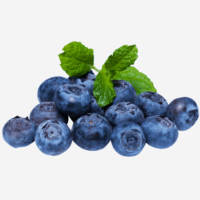What is Ginger? Ginger is a plant that is native to tropical and subtropical regions of Asia and is widely cultivated for its edible rhizome, which is known as ginger root or simply ginger. Ginger is a popular spice that is used in many cuisines around the world for its distinctive flavor and aroma. It is used as a spice in many dishes and can also be used to make ginger tea or ginger ale. Ginger has a long history of use in traditional medicine and is believed to have anti-inflammatory, antioxidant, and digestive properties. It is also commonly used to help alleviate nausea and motion sickness.
Table of Contents
What is the source of Ginger?
Ginger is a plant that is native to tropical and subtropical regions of Asia, including India, China, and Indonesia. It is a perennial plant that grows to a height of about 1 meter (3 feet) and has narrow green leaves and pale yellow or white flowers. The part of the ginger plant that is used as a spice is the rhizome, which is a thick, underground stem that grows horizontally and produces shoots and roots. Ginger is grown in many countries around the world, including India, China, Indonesia, Nigeria, and Thailand, which are the largest producers. It is also grown in other tropical and subtropical regions, such as the Caribbean, South America, and Africa.
Ginger Nutrients per Serving
The nutritional content of ginger can vary depending on how it is prepared and consumed. Here is the nutritional content of one serving (about 1 ounce or 28 grams) of raw ginger root:
- Calories: 40
- Protein: 1 gram
- Fat: 0 grams
- Carbohydrates: 9 grams
- Fiber: 1 gram
- Vitamin C: 4 milligrams (7% of the daily value)
- Manganese: 0.4 milligrams (20% of the daily value)
- Copper: 0.1 milligrams (6% of the daily value)
- Potassium: 159 milligrams (4% of the daily value)
- Magnesium: 13 milligrams (3% of the daily value)
Please note that these values are approximate and may vary slightly depending on the specific variety of ginger and the conditions in which it is grown.
It’s important to note that ginger is typically consumed in small amounts as a spice and is not a significant source of nutrients in the diet. However, it can contribute a small amount of nutrients and may have some health benefits when consumed in moderation as part of a balanced diet.
Ginger Nutrition
Ginger is a good source of several nutrients, including:
- Vitamin C: Ginger is a good source of vitamin C, a water-soluble vitamin that plays a number of important roles in the body. It helps to support the immune system, protect cells from oxidative stress, and promote the healing of wounds.
- Manganese: Ginger contains manganese, a mineral that is important for bone health, metabolism, and the proper functioning of enzymes in the body.
- Copper: Ginger also contains copper, a trace mineral that is important for the formation of collagen, the production of energy, and the absorption of iron.
- Potassium: Ginger is a good source of potassium, a mineral that helps to regulate blood pressure, maintain healthy muscle function, and support the nervous system.
- Magnesium: Ginger contains magnesium, a mineral that is important for bone health, muscle function, and the proper functioning of the nervous system.
Ginger also contains small amounts of other nutrients, including vitamin B6, folate, and riboflavin.
Health Benefits of Ginger
Ginger has a long history of use in traditional medicine and is believed to have a number of health benefits. Some of the potential health benefits of ginger include:
- Anti-inflammatory effects: Ginger contains compounds that may have anti-inflammatory effects and may help to reduce inflammation in the body. This may be helpful in the management of conditions such as arthritis and other inflammatory diseases.
- Digestive aid: Ginger has been used traditionally to help alleviate digestive issues such as nausea, vomiting, and bloating. It may also help to stimulate the production of digestive juices and enzymes, which can aid in digestion.
- Cardiovascular health: Some studies have suggested that ginger may have a beneficial effect on cardiovascular health by reducing cholesterol levels and blood pressure.
- Pain relief: Ginger may have pain-relieving effects and may be helpful in the management of chronic pain conditions such as osteoarthritis and migraines.
- Immune system support: Ginger is a good source of vitamin C and other antioxidants, which may help to support the immune system and protect against oxidative stress.
It’s important to note that more research is needed to fully understand the health benefits of ginger and to determine the appropriate dosages and forms for use. If you are interested in using ginger for its potential health benefits, it is best to speak with a healthcare provider.
How to Use Ginger
There are many ways to use ginger, depending on your preference and the dish you are preparing. Here are some ideas for incorporating ginger into your diet:
- Fresh ginger: Fresh ginger can be peeled and grated or thinly sliced and added to a variety of dishes, such as stir-fries, soups, and marinades. It can also be steeped in hot water to make ginger tea.
- Dried ginger: Dried ginger can be used as a spice in baked goods, such as gingerbread or ginger snaps, and in savory dishes like rubs for meats.
- Ginger powder: Ginger powder can be used as a spice in a variety of dishes, including curries, marinades, and sauces.
- Ginger supplements: Ginger supplements, such as ginger capsules, tablets, or extract, are available in many health food stores and online. It is important to follow the dosage instructions on the product label and to speak with a healthcare provider before using ginger supplements.
When using fresh ginger, it is important to note that the flavor and intensity of the ginger can vary depending on the age and size of the ginger root. Young ginger tends to be more mild in flavor, while mature ginger can be more pungent.
Ginger Healthy Recipes
Here are a few healthy recipes that feature ginger as a key ingredient:
- Ginger-Soy Grilled Salmon: In this recipe, salmon is marinated in a mixture of soy sauce, honey, and grated ginger, then grilled to perfection. Serve with a side of vegetables or rice for a complete meal.
- Ginger-Carrot Soup: This simple and nourishing soup is made with ginger, carrots, broth, and coconut milk. It’s easy to make and perfect for a light lunch or dinner.
- Ginger-Peanut Noodles: This flavorful and satisfying dish is made with noodles, vegetables, and a ginger-peanut sauce. It’s a great way to use up leftover veggies and is perfect for a quick and easy meal.
- Ginger-Lime Shrimp: In this recipe, shrimp is marinated in a mixture of ginger, lime juice, and spices, then grilled or pan-fried to perfection. Serve with a side of rice or vegetables for a complete meal.
- Ginger-Mango Smoothie: This refreshing smoothie is made with mango, ginger, banana, and coconut water. It’s a great way to start your day or refuel after a workout.
I hope these recipes inspire you to incorporate more ginger into your diet. Enjoy!
Side Effects of Ginger
Ginger is generally considered safe when consumed in small to moderate amounts. However, some people may experience side effects when consuming large amounts of ginger, or if they have certain medical conditions.
Possible side effects of ginger include:
- Heartburn: Ginger can stimulate the production of stomach acid, which may cause heartburn in some people.
- Diarrhea: Ginger may have a mild laxative effect and may cause diarrhea in some people.
- Mouth irritation: Some people may experience mouth irritation or a burning sensation when consuming raw ginger.
- Allergic reactions: Some people may be allergic to ginger and may experience symptoms such as hives, swelling, or difficulty breathing.
- Interactions with medications: Ginger may interact with certain medications, such as blood thinners, and may increase the risk of bleeding. It is important to consult with a healthcare provider before taking ginger if you are taking any medications.
- Pregnancy: Some studies have suggested that consuming large amounts of ginger during pregnancy may increase the risk of miscarriage. However, more research is needed to confirm this. It is generally recommended to consume ginger in moderation during pregnancy.
It is always best to consult with a healthcare provider before adding ginger to your diet, especially if you have a medical condition or are taking any medications.
Frequently Asked Questions on Ginger
1. Is ginger good for digestion?
Ans: Ginger is commonly used as a digestive aid and may help to alleviate digestive issues such as nausea, vomiting, and bloating. It may also help to stimulate the production of digestive juices and enzymes, which can aid in digestion.
2. Is ginger good for inflammation?
Ans: Ginger contains compounds that may have anti-inflammatory effects and may help to reduce inflammation in the body. This may be helpful in the management of conditions such as arthritis and other inflammatory diseases.
3. Is ginger good for weight loss?
Ans: There is some evidence to suggest that ginger may have a beneficial effect on weight loss and body composition. However, more research is needed to fully understand the relationship between ginger and weight loss and to determine the appropriate dosages and forms for use. It is important to note that ginger is not a magic cure for weight loss and that a healthy diet and regular physical activity are essential for maintaining a healthy weight.
4. Can ginger be harmful?
Ans: Ginger is generally considered safe when consumed in moderate amounts as a spice or food. However, ginger supplements can interact with certain medications and may not be suitable for everyone. It is important to speak with a healthcare provider before using ginger supplements or if you have any concerns about using ginger.
5. How much ginger should I consume daily?
Ans: There is no recommended daily intake of ginger, as it is not considered a significant source of nutrients in the diet. However, it is generally considered safe to consume ginger in moderate amounts as a spice or food. Some studies have used dosages of up to 3 grams of ginger per day for medicinal purposes, but it is important to speak with a healthcare provider before using ginger in large amounts.











